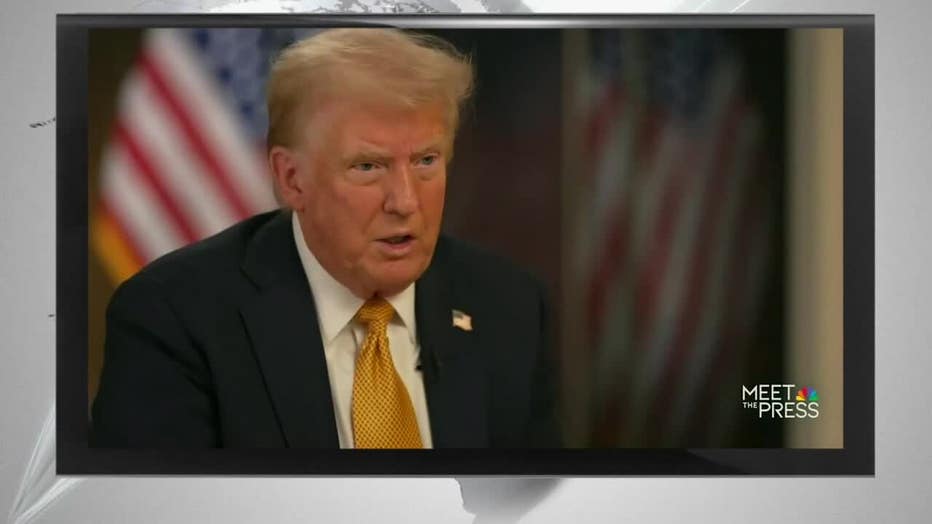Trump hopes to end birthright citizenship by executive order; experts say that’s unconstitutional

Trump hopes to end birthright citizenship by exec order
President-elect Donald Trump said he is committed to ending birthright citizenship. But some legal experts believe his proposal to do it is unconstitutional.
DALLAS - President-elect Donald Trump said he is committed to ending birthright citizenship. But some legal experts believe his proposal to do it is unconstitutional.
Trump has doubled down on his plan to end birthright citizenship, among other immigration promises.
Sunday on "Meet the Press," he said he’d end it by executive order.
"I don’t want to be breaking up families. So, the only way you don’t break up the family is you keep them together, and you have to send them all back," he said.

President-elect Donald Trump on Meet the Press
But constitutional lawyer David Coale said, in his opinion, that’s not something the president can do.
"He cannot because birthright citizenship is expressly guaranteed in the 14th Amendment. It’s part of the Constitution just as much as anything else is. And the only way to change that is by the amendment process, which is long and complicated by design. It’s very hard to amend our Constitution," he said.
Coale said making a change to the Constitution would require ratification from three-fourths of the states.
In Sunday’s interview, Trump hinted he may have to go to the states. But he maintains he can eliminate birthright citizenship by executive action.
"Now he can sign an executive order that affects how the federal government interacts with that provision, maybe sets forth the priorities, maybe requires agencies to study the issue, calls upon everyone to move quickly, and have an amendment to the Constitution about that," Coale said. "That would just be ways of nudging the ball down the road towards a constitutional amendment. You can’t just take your pen and make an amendment to the Constitution and our system of government."
Coale said Trump does have some authority when it comes to mass deportations, but there’s still the question of resources and manpower.


